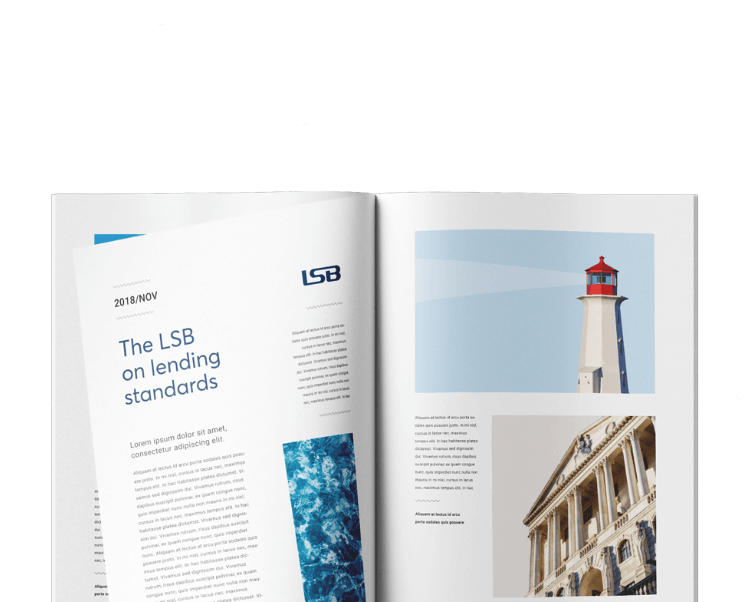Over the 2023-24 business year, the financial services sector went through some substantial changes. Among other developments, take-up of digital products and services has continued to grow, while the transition to net zero has continued to intensify, driving up the demand for green products and services. Meanwhile, the banks, lenders and other payment service providers are exploring the use of Artificial Intelligence, creating plenty of opportunities for improved outcomes – but also creating a risk that the ‘human touch’ might be lost from some offerings. Ongoing cost of living challenges continue to put pressure on households, prompting firms to ramp up the support they provide, while scammers continue to exploit technological changes and the financial environment to prey on vulnerable customers.
Against this backdrop, we’ve been encouraged to see the commitment displayed by our registered firms to tackling challenges and addressing emerging customer risks. To support this work, we’ve continued to share insights, considerations and guidance with firms as they aim to provide their customers with fair outcomes. In this post, we are bringing together a year of insights into one place.
How to stop customers from creeping into difficulty
The impact of the cost of living crisis has been saturating news feeds for some time now, and it has naturally been a keen area of focus for the LSB. As financial services firms continue to support personal customers and SMEs in financial difficulty, we’ve been exploring a new wave of customers who are at risk of falling into difficulty for possibly the first time. The challenge for firms has been how to identify those who are slowly creeping into difficulty where data may not paint a true picture of their struggles, and how to engage those customers when they may be experiencing barriers to reaching out for help.
To support registered firms with identifying and engaging their customers through financial difficulty, we have written about how firms can utilise available data to monitor trends and patterns that could help to spot those falling into difficulty, such as looking at changes in spending habits – the use of credit for essential goods, like groceries, for example. We also provided insights on how to raise awareness of potential customer struggles among staff so they can better spot the signs of financial difficulty, and how proactive engagement can empower customers to have choice in finding the right resolution with repayments. Read more in our piece on The Creep here.
Meanwhile, our Compliance team carried out a piece of work looking at our registered firms’ vulnerability practices and processes across personal and business lending, as well as the scams space for firms signed up to our CRM Code. This review ensured we have a full picture of how firms are treating their vulnerable customers across the whole lending journey. We identified areas of good practice which were shared in a report, as well as areas of improvement and considerations for strengthening support for customers in difficulty. Read the full summary report here.
One area of improvement drawn out in the vulnerability summary report was the use of Quality Assurance (QA) as a tool to monitor customer outcomes. We found QA was often narrowly focused on processes and procedures for the identification of vulnerabilities, rather than the use of soft skills. This risks not identifying when staff miss vulnerability triggers, aren’t empathetic, or carry out the necessary probing skills needed to fully understand the customer’s situation. To ensure registered firms know how to make the most of QA to identify what is and isn’t working well and achieving a fair outcome for customers, as well as identifying areas of improvement, we released an exclusive report for registered firms which broke down the different elements of QA. From coaching and developing staff on what good looks like, to balancing how many QA checks to carry out versus the quality of the data being received as a result, registered firms can read the full piece here.
Prevention over cure
Elsewhere in the scams space, our drive to provide greater protections for customers from Authorised Push Payment (APP) fraud did not slow down over the last year. A focus on prevention and aftercare to prevent repeat fraud is just as, if not more, important than financial reimbursement, because of the emotional distress and damage that is caused by being scammed, and which cannot be undone by reimbursement alone. To that end, after making further updates to the Code, which included requirements for CRM Code signatory firms receiving scam payments to play a greater role in stopping fraudulent transactions, we held a roundtable for CRM Code signatories to share guidance on the updates, as well as further insights on preventing scams from occurring.
As well as scam prevention, we also shared insights on aftercare provided by banks and lenders following a successful scam. Aftercare, Not an Afterthought looked at the positioning and emphasis on scam education and support following a scam, to ensure customers don’t become repeat victims.
Meeting customers’ needs: inclusion and sustainability
Against the backdrop of rising cost of living challenges, the persistence of scammers, and, of course, the evolution of financial services as Artificial Intelligence and digital products become the new norm, there’s never been a more important time for banks and lenders to ensure their customer base can access the services they need, regardless of their circumstances or preferences.
To that end, we have carried out a series of research projects on financial inclusion to better understand the barriers that customers face when trying to access banking and lending services. The first project launched in 2022, where we shone a spotlight on access for disabled business owners and those with other access needs, identifying existing barriers and producing a report to outline how banks and lenders can work to break down those barriers. Following the success of that project, over the last business year we have conducted two further pieces of research, focusing on access for d/Deaf customers in banking and credit, and increasing access to finance for ethnic minority-led businesses.
Our research in all of these areas found risks of financial exclusion. We worked with experts by experience, charity and consumer group representatives, and other stakeholders, to produce two groundbreaking reports which were designed to support banks and lenders break down the barriers faced by their customers. This included practical considerations on accessible communications, using champions to empower customers, the importance of signposting, ensuring recruitment is inclusive, and utilising lived experience experts throughout the design and delivery of services.
We have already seen banks and lenders take action as a result of these reports. Our follow up report to our research on access for d/Deaf customers in banking and credit, highlights the improvements that have been made across our registered firms to be more inclusive for customers affected by hearing loss, including improved availability of British Sign Language services. This is a positive start and will continue to be a key area of focus for the LSB into this year and beyond. Meanwhile, the LSB’s recent business Standards consultation identified the need for further guidance on how registered firms support business customers through digital channels, as well as guidance for firms on inclusive lending to SMEs.
When thinking about meeting customers’ needs, firms must also consider the wider environment and the external pressures on individuals and businesses. A prime example of this is the intensifying efforts to transition to net zero. Our business Standards review identified green finance as an area where additional guidance would benefit banks and lenders in supporting their customers. Our initial report on this topic provided high-level guidance for firms on how they can use the business Standards to maintain a customer-centric approach when developing green finance products. Firms can expect to see further insights and guidance in this space over the coming year.
Training on the challenges raised above is available for banks and lenders. Get in touch with our Insight team if you’d like to discuss your firm’s training needs. You can find out more here.









